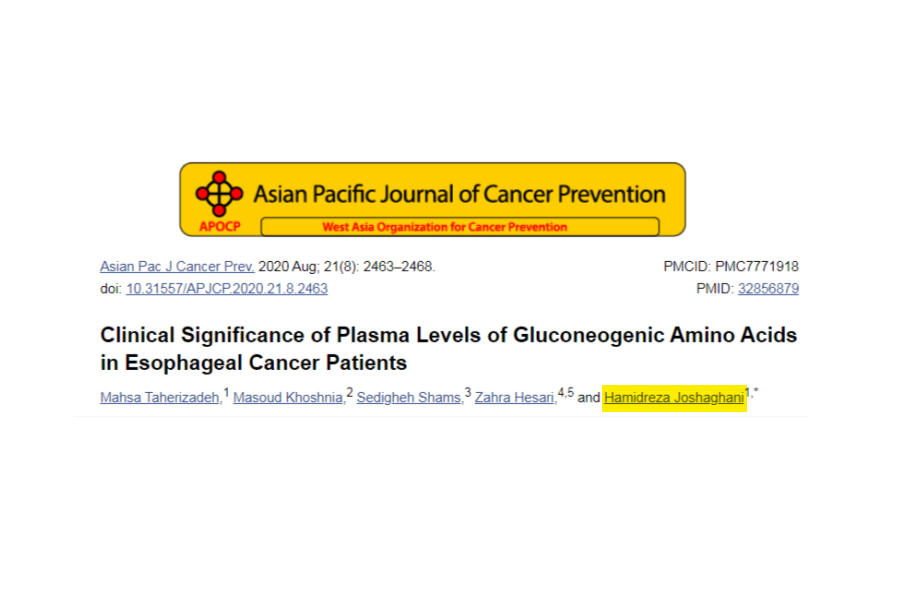اهمیت بالینی سطح پلاسمائی اسیدهای آمینه گلوکونئوژنیک در بیماران مبتلا به سرطان مری
Abstract
Objective: Metabolic processes in the body of people with and without esophageal cancer (EC) are significantly different. Therefore, changes in the metabolism of amino acids in the body of EC patients can lead to metabolic disorders, such as increased gluconeogenesis. The aim of this study was the comparison of the plasma levels of gluconeogenic amino acids between patients with EC and the control group.
Methods: Plasma samples of 37 patients with EC who were selected before any treatment or surgery, and 37 healthy adults who did not have history of family cancer and malignant diseases were taken. Analysis of the plasma levels of amino acids including, alanine, asparagine, aspartate, glutamate, glutamine, glycine, serine, arginine, histidine, methionine, threonine, valine, tyrosine, isoleucine, phenylalanine, tryptophan was done by High Performance Liquid Chromatography (HPLC) based on reverse-phase-chromatography. Data analysis was done by SPSS-16 software.
Results: In the patient group the mean age ± SD was 63±۱۳٫۶۴ and 21 (56.8%) were male.The plasma levels of the alanine, asparagine, histidine, methionine, threonine, valine amino acids in the patients with esophageal cancer was significantly reduced and glycine was increased (p-value<0.05).
Conclusion: Gluconeogenic amino acids are the main precursor of glucose synthesis in the gluconeogenesis pathway. Cancer cells need more energy to grow and multiply, and glucose is used as the main fuel for cells. Given the importance of metabolic pathways in cancer cells, more detailed studies at the molecular level can provide new insights into early detection and appropriate treatment strategies for cancer.
View Full Text: http://10.31557/APJCP.2020.21.8.2463




پاسخ دهید
میخواهید به بحث بپیوندید؟مشارکت رایگان.